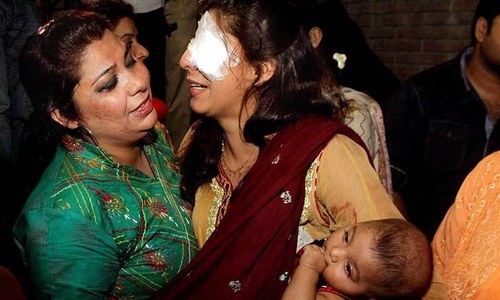KARACHI: The executive director of Jinnah Post Graduate Medical Centre (JPMC) Professor Dr Anisuddin Bhatti said that the Sindh government apportioned Rs1.5 billion for the development of JPMC in past one year.
Dr Bhatti, however, said this while inaugurating a private funded Intensive Care Unit (ICU) in the surgical department built by Patients Helping Hands.
The inauguration ceremony was held on Wednesday at JPMC’s Radiology department’s building, which is also a private funded facility built by Patients Aid Foundation — the NGO responsible for building many facilities at JPMC.
“I have asked [Sindh CM] Qaim Ali Shah to release funds for the hospital, more than once, and every time he responded positively to my requests,” said Dr Bhatti, however, the members of PHH had the other side of story to tell.
PHH comprises young medical students of Jinnah Sindh Medical University (JSMU), formerly known as Sindh Medical College or SMC, working with the sole aim to offer patients the medical help the government failed to offer.
Know more: Meet the hidden angels of Jinnah Hospital
An office bearer of the PHH said “had it not been for USAID, Patients Aid Foundation and us [PHH] you wouldn’t be seeing any development activity that is currently undergoing at JPMC”.

“Running such a big government hospital is not possible without partnering with private sector,” said Dr Bhatti.
PHH has already been running two drugstores and three fully-equipped High Dependency Units (HDUs), entirely through funds it raises itself. The ICU inaugurated on Wednesday is the fourth such intensive care facility established by the student-run NGO.
Built at a cost of Rs1.2 million, raised entirely through donations, the seven-bed surgical ICU offers state of the art medical facilities to patients brought to JPMC in critical condition.
PHH member Talbia Bint Humayun said that the latest facility was upgraded in a span of just four months.
“We divided the work in two phases; the first phase included installing monitors and other electronic essential equipments,” she said.
The second phase includes installing ventilators and ECG machines, which will be completed on priority basis, Talbia added.
















































